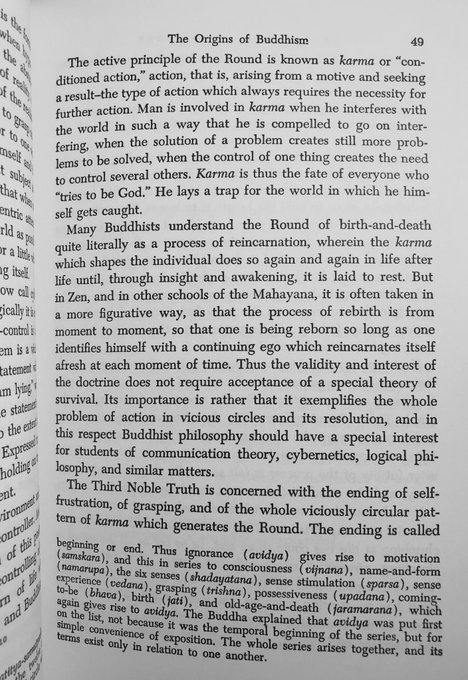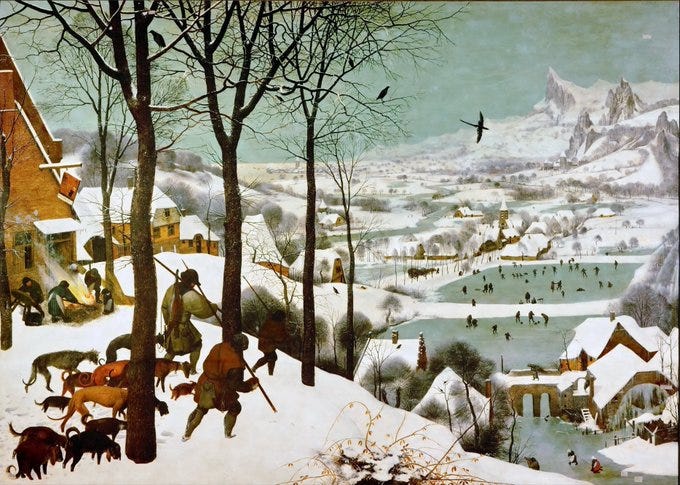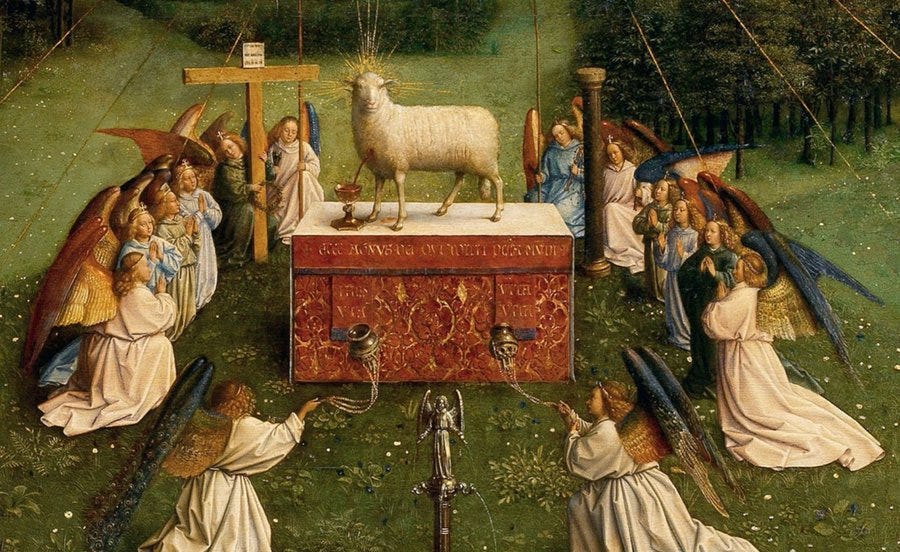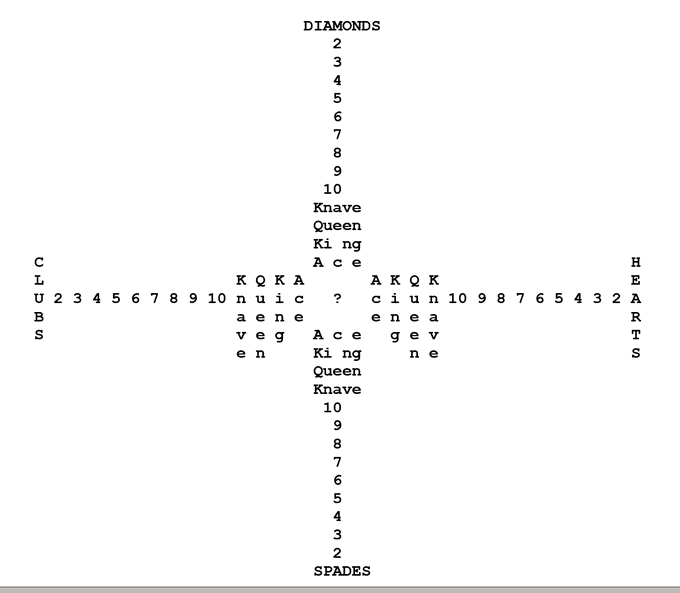My adventure with Alan Watts started 30 years ago. I bought his book—The Way of Zen, translated into Russian—by accident, in a very strange place: a local village market in the south of Russia. It was there, among all kinds of esoteric garbage. The quality of the translation helped a lot, though I can only appreciate that now.
I think Alan Watts is the author I quote the most in my tweets. Anyway, here are his major ideas, from my perspective of significance, in no particular order.
Zen Aesthetics
For a kid who grew up during Soviet Union times, the Zen aesthetics in the books of Alan Watts (and Jerome Salinger, for that matter) were like a breath of fresh air. Koans, Japanese art, all of that—I am forever grateful for this introduction.
Mount Lu in misty rain; the River Che at high tide.
When I had not been there, No rest from the pain of longing!
I went there and returned. ...
It was nothing special: Mount Lu in misty rain; The River Che at high tide.quoted from The Way of Zen by Alan Watts
Broken Stereotypes and Busted Myths
I learned from Watts that some well-known concepts are often misrepresented not only in the West but also in the East: reincarnation, samsara, nirvana, meditation, and, of course, karma.
Reincarnation
The vast majority of Asian Hindus and Buddhists continue to believe that reincarnation is a fact. [...] Western Buddhists even find this belief consoling, in flat contradiction to the avowed objective of attaining release from rebirth.
Alan Watts, Psychotherapy. East & West. 1961
Samsara and Nirvana
There is no Nirvana except where is Samsara; there is no Samsara except where is Nirvana.
Meditation
People do not really understand what meditation is. Meditation is the one human activity that has no purpose. […]
That just happens to be the way a Buddhist sits. When he sits, he sits. When he walks, he walks. He is not going anywhere.Alan Watts, Myth and Religion
From that perspective, many aspects of modern meditation practices appear absolutely hilarious. Meditation, as we know it, is a product of modern times.
Karma
Man is involved in karma when he interferes with the world in such a way that he is compelled to go on interfering, when the solution of a problem creates still more problems to be solved, when the control of one thing creates the need to control several others.
Alan Watts, The Way of Zen
Parallels in Christianity
If you're interested in Christianity, Myth and Ritual in Christianity is a gem. It's no coincidence that Alan Watts popularized both Zen and Orthodoxy—he understood how the world works. This book is also a great way to refresh your knowledge of the Gospels and the Church's rituals.
This book wasn't written by accident, of course. Alan Watts earned a master's degree in theology from Seabury-Western Theological Seminary and became an Episcopal priest in 1945. You can't simply erase that kind of experience.
To be an Orthodox Christian is therefore to enter into an intense adventure.
[...] The stakes are eternal bliss and eternal torture—the issue to be decided irrevocably in one short human life which may end at any minute.Alan Watts / The Two Hands of God
The Story of the Tree
For Eden is not only the mirror of Paradise above: it is also a reflection of Christ, wherein all the events of man's Redemption are seen in reverse. Over against the Tree of Knowledge, from which came death, is the Tree of the Cross, from which came eternal life.
This opens an interesting analogy: eating the Fruit in the Garden of Eden to bring death versus eating the Bread and Wine at the liturgy to bring life.
The Magic of the Cycle of the Christian Year
In traditional Christianity the religion is learned less from the Bible than from the cycle of the Christian Year, which is a ritual re-living of the life of Christ. Within this cycle the events of the OT form not a continuous story, but a system of oracles or prophecies.
From this point of view, history begins with Adam and begins again with Christ, so much so that what happens in between occurs within an epoch of darkness wherein God is known only through "types and shadows".
Time itself became holy so that the very years are reckoned from His birth—Anno Domini, in the Year of the Lord.
The seasons of the year are themselves transformed from the pagan Spring-Winter to the Christian Advent, Christmas, Epiphany, Lent, Passiontide, Easter, and Pentecost.
Pure poetry.
What I also like is that he often highlights subtle yet important topics, which are not always obvious, even to profound adepts of Christianity.
Jesus as Agnus Dei
The marvelous symbolism of the Mass, as of the Crucifixion itself, has to be understood in relation to the mysterious “Lamb sacrificed from the foundation of the world” which is mentioned in the Apocalypse. (Rev 13:8)
Alan Watts — Myth and Ritual in Christianity
The meaning of the Lamb (Christ) slain from the foundation of the world (Rev. 13:8). Alan Watts mentioned it in a footnote, as if it were something unimportant.
“I will open my mouth in parables; I will utter things hidden since the foundation of the world.” Matthew 13:35
The creation of the world in six directions and three dimensions is the primordial crucifixion of the Logos, the slaying of the Lamb at the foundation of the world.
I find these insights fascinating.
Time and Christ
Jesus Christ, as the Second Person of the Trinity, the true God, the Son, Logos, was born before the material world “from everlasting” (Micah 5:2), meaning from eternity. Technically there was no time at the point of His birth. He created everything including time and the universe 'later'. (Col 1:15-17)
And time has no power over Him, therefore He could say “Before Abraham was, I AM.” (John 8:58) because for Him “there is no change, nor shadow of alteration.” (James 1:17)
Now is the meaning of eternal life. Jesus said, “Before Abraham was, I am.”
He didn’t say “I was.” He said, “I am.”
And to come to this, to know that you are and there is no time except the present, is to suddenly attain a sense of reality.Alan Watts / From Time to Eternity
The past and future do exist; what does not exist is time.
Because, for so many centuries, the theologians have confused eternal life with everlasting life, and salvation with temporal immortality, our culture is utterly hypnotized into the notion that mere continuity, survival, is a good—if not the supreme good.
Alan Watts — Myth and Ritual in Christianity
Salvation is release from the enchantment of time.
Ibid.
Creation as surprise
The Lord is not working according to a preconceived plan. The creation is perfectly spontaneous. Every stage of it surprises him. Only when it is done does he see that it is good. “And God created great whales ( oops! ), and every living creature that moveth, which the waters brought forth abundantly, after their kind, and every winged fowl after his kind : and God saw that it was good.”
[…]
Just like that, and only afterwards did he look and see that it was good.
Alan Watts / Talking Zen
I think the Genesis creation story has nothing to do with an 'engineering' approach of any kind. The creation was spontaneous—I'm pretty sure of that now. And that 'oops' is an exact word from Alan Watts' writing, and that's unbelievable.
The Hindus figure that God presses the surprise button every so often. That is to say, for a period of four million, three hundred and twenty thousand years, God knows who He is. And then He gets bored with that and forgets who He is for an equal period.
Ibid.
The Dark Side and other controversial topics
There are some controversial topics that I would approach with caution, but they are still worth considering.
The dark side of life has its integral part in the game just as every drama must have its villain, to disrupt the status quo, and as the cards must be shuffled, thrown into chaos, in order that there may be a significant development of the play.
Alan Watts
The Joker makes an appropriate centre for another reason: in games he is allowed to represent any other card in the pack. So also in this figure he is the 2 and the Ace and all that lies in between—Alpha and Omega, the beginning and the ending ... the first and the last.
Alan Watts
Have Fun
What I love most about Alan Watts is that he always shares a sense of fun with the audience. The same is true for Ludwig Wittgenstein, by the way.
“We say of a person who is insane that he is not all here. Not being all here is our collective disease.”
Alan Watts / From Time to Eternity
And that's exactly what being on Twitter is all about.
See you later.











It would be interesting to hear your thoughts on his alcoholism, for some it's a deal breaker, for myself it's an interesting harmony of ideas and practical life.